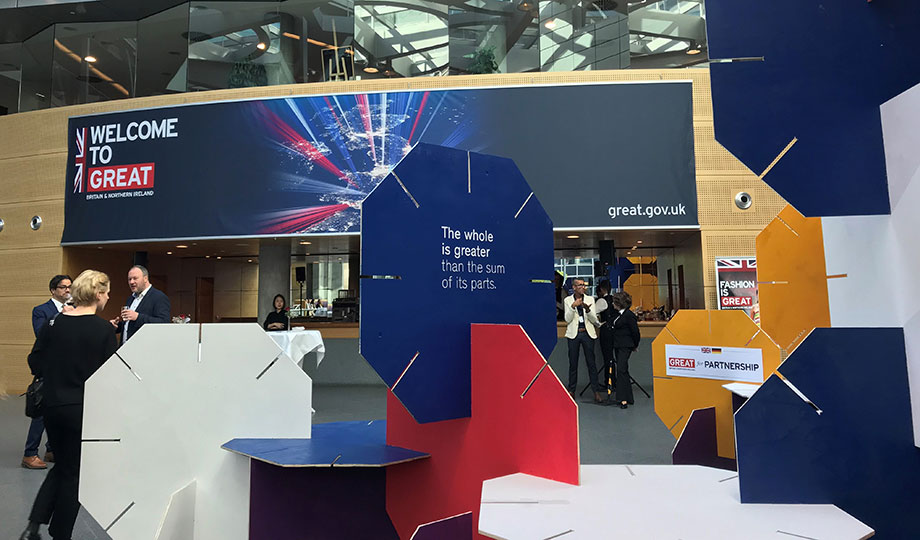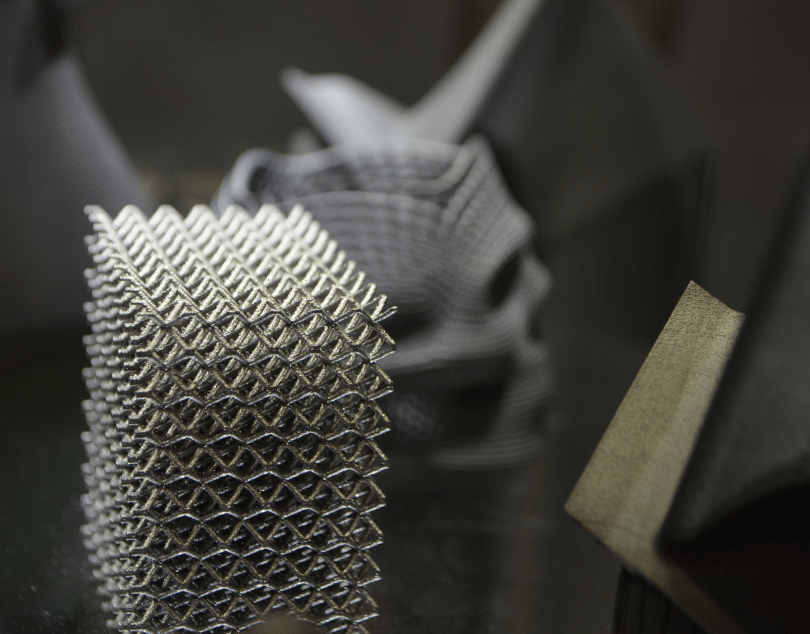Brunel University London and Hanover-based LZH Laser Akademie GmbH are undertaking the development of a recognized International Qualifications System for Additive Manufacturing. Deemed the Sector Skills Strategy in Additive Manufacturing, or SAM for short, this project recently served as a statement of Britain and Germany’s commitment to academic collaboration, even in light of the British exit from the European Union.
Instilling the essence of the project’s showcase in Berlin this week Dame Janet Beer DBE, President of Universities UK, stated:
“Irrespective of the outcome of the Brexit process, universities in the UK are committed to continue their deep rooted and ground-breaking academic collaborations with German and European academic institutions and companies.”
“Collaborative research and teaching are a key component to UK Higher Education’s success and is something we need to work hard to protect and nurture.”

The engineering skills shortage
The demonstrated focus on digital, and the cyber-physical systems of Industry 4.0, the already strained engineering and manufacturing sectors are facing a significant skills shortage. The solution to this is being tackled in education for all ages, from the STEM focus in schools, up to the development of new industry-specific degrees, apprenticeships and training programs at universities and invested organizations. The SAM project from Brunel and LZH Laser Academie is a means of standardizing such efforts across higher education.
Funded by the European Commission, SAM involves the collaboration of 16 partners from industry and relevant educational bodies. This includes the European Association of the Machine Tool Industry CECIMO, French elite engineering school Centrale Nantes, and the European Welding Federation (EWF) which is project coordinator.
Dr. Eujin Pei, Director for Postgraduate Research, is Brunel’s lead representative for the SAM project. “The SAM project brings together a group of consortium members including highly qualified researchers, academics, policy makers and industry to deliver and implement a standardized qualifications programme to reskill and upskill the EU workforce as we move into this new era,” explains Dr. Pei.
“Brunel plays an important role to ensure that we implementation this additive manufacturing qualifications program.”
SAM’s main aims, as listed by CECIMO, the organization in charge of dissemination activities for the project, are as follows:
– To develop a skills strategy in additive manufacturing which supports growth, innovation and competitiveness.
– To undertake a methodical observation of current and future skills needs in the technology, facilitating the mapping of trends, shortages, and mismatch in policy and figures.
– To design, review and deploy relevant qualifications.
– To promote additive manufacturing as an attractive career choice.
– And to compile an online qualifications catalog to reference, update and enlarge the European AM Qualification System.

Going Global with European education
Earlier this week, SAM was part of a showcase held at the British Embassy in Berlin which was scheduled to align with the British Council’s Going Global Conference. Founded in 2004, Going Global is an annual event allowing educational leaders to debate the future of further and higher education. Though speaking generally about the state of education the comments of Dr. Isabel Ortiz Marcos, Deputy Vicerrector for Acadmic and International Planning at Universidad Politecnica de Madrid, today seemed to highlight the challenges faced by programs such as SAM.
“We are living in a world where change is very fast,” Dr. Marcos told guests at the bcc Berlin Congress Center, “before we did not know what would be in 10 years, now we do not know what will be in 2 years.”
Across town at the British Embassy in Berlin the showcase, organized by the British Universities International Liaison Association (BUILA) and its German counterpart the Deutsche Assoziation für Internationalen Bildungsaustausch (DAIA), presented some possible solutions.
“We are delighted to support the work of BUILA and DAIA and to be hosting this showcase at the British Embassy,” commented Robbie Bulloch, The British Embassy’s Deputy Head of Mission. “Fostering links between Germany and the UK, within both academia and business, is an important role that we undertake at the British Embassy,”
“Our future economic growth depends on collaboration.”
In the past six years alone, an estimated 11,000+ joint research projects have been undertaken in collaboration between German and UK academics. For this reason Christian Müller, Deputy Secretary General at the German Academic Exchange Service (DAAD), believes that “The importance of collaborative research between Germany and the UK cannot be underestimated.”
“It is absolutely crucial that these research links are maintained,” Müller adds.
The SAM project will run for four year from now, reaching completion in 2022.
Vote for your 2019 Innovation of the Year in the 3D Printing Industry Awards.
For more regular 3D printing updates subscribe to the daily 3D Printing Industry newsletter, follow us on Twitter, and like us on Facebook. Find talent for a project, or advance your career in 3D printing – join 3D Printing Jobs to apply and advertise.
Featured image shows laser powder bed fusion (LPBF) additive manufacturing at German 3D printer OEM EOS. Photo via EOS



